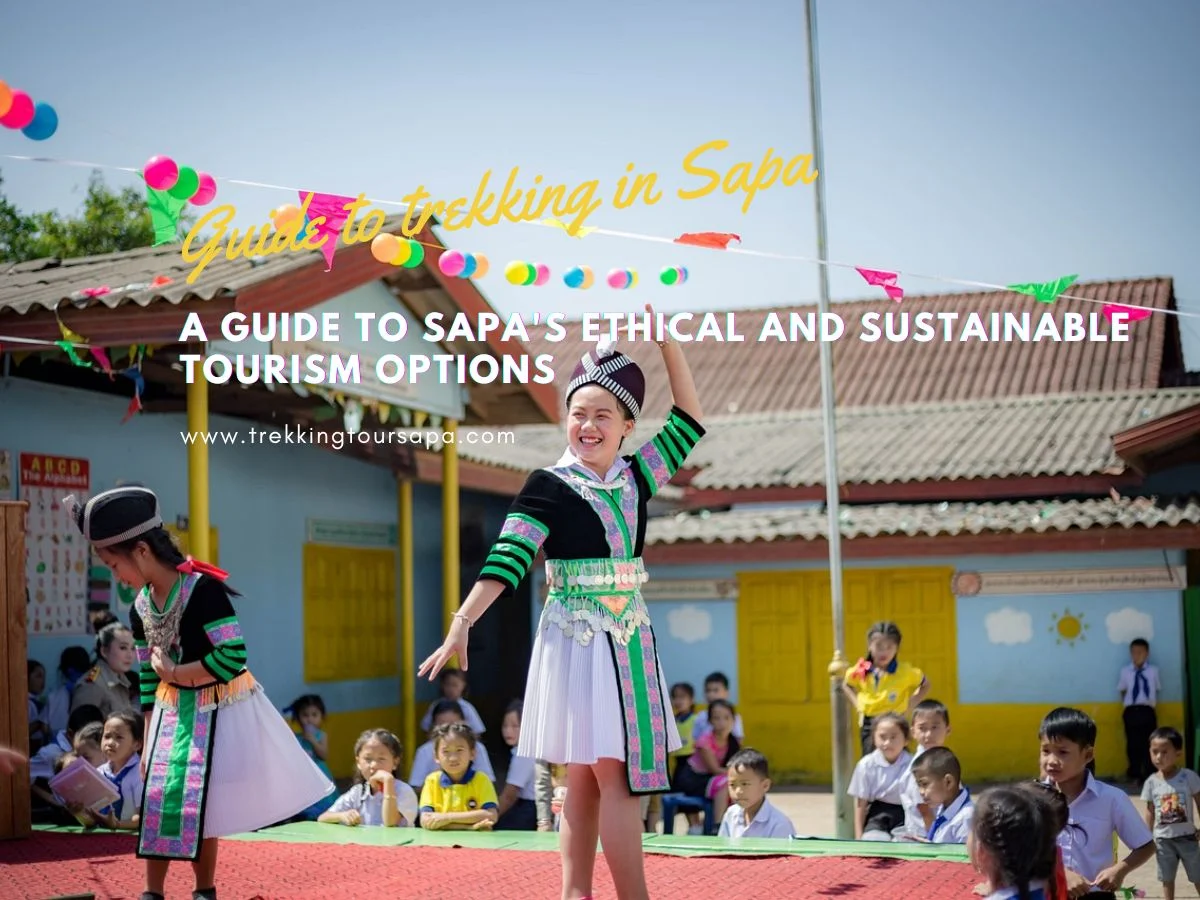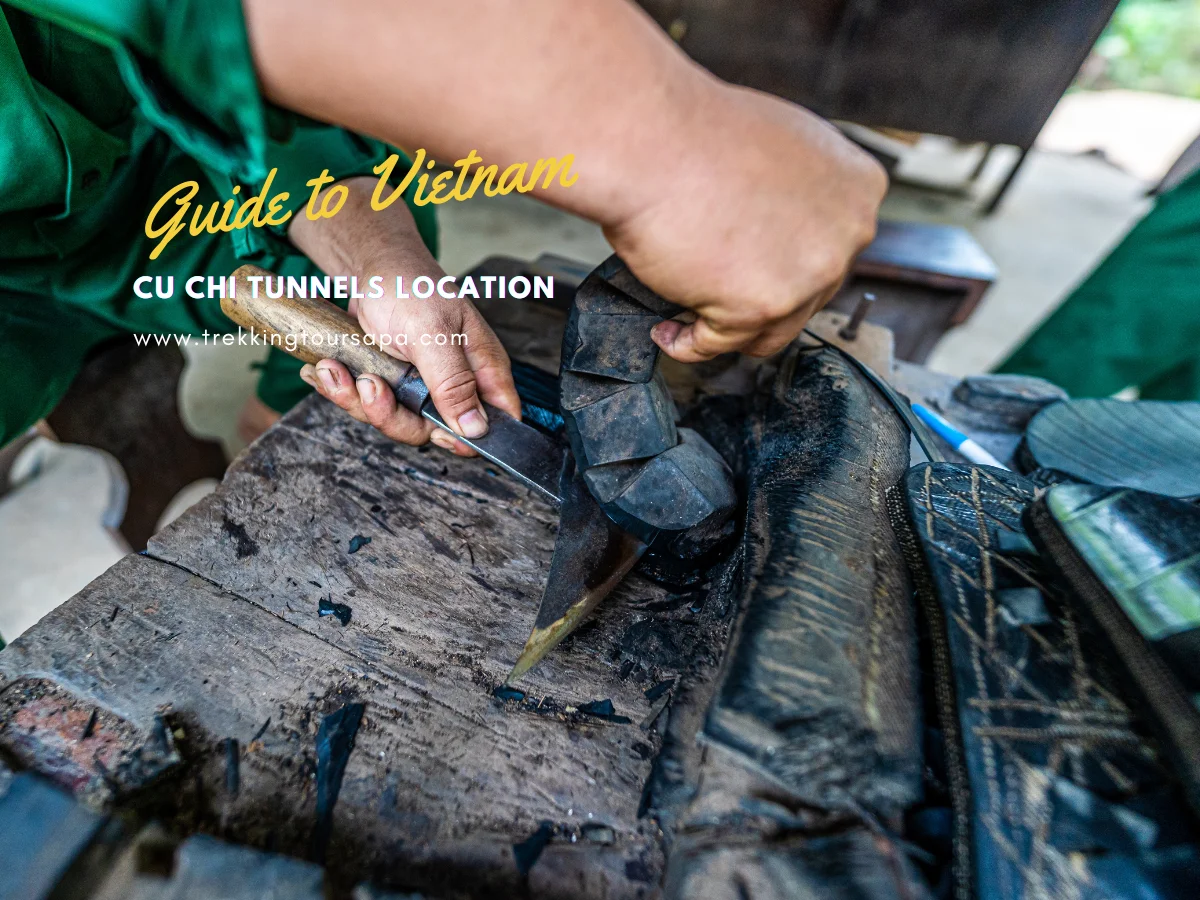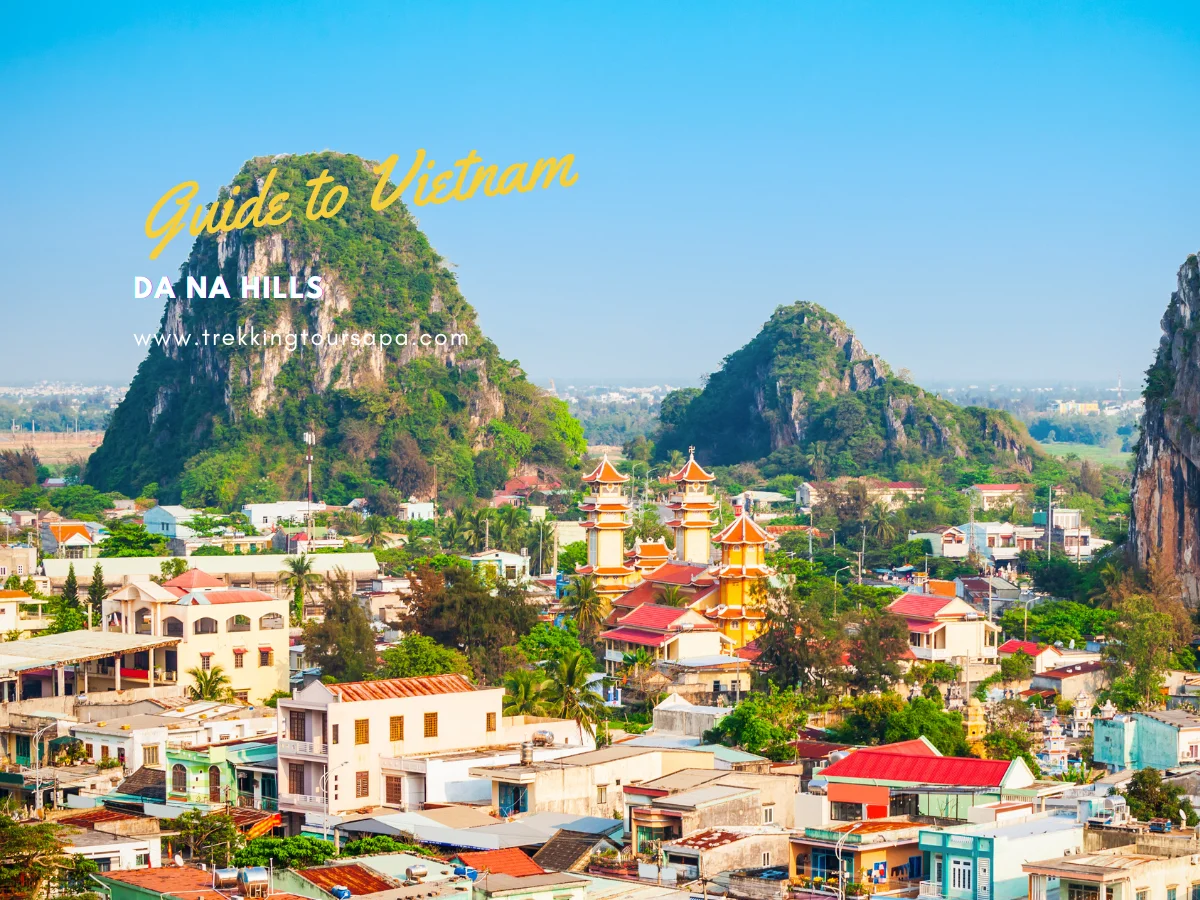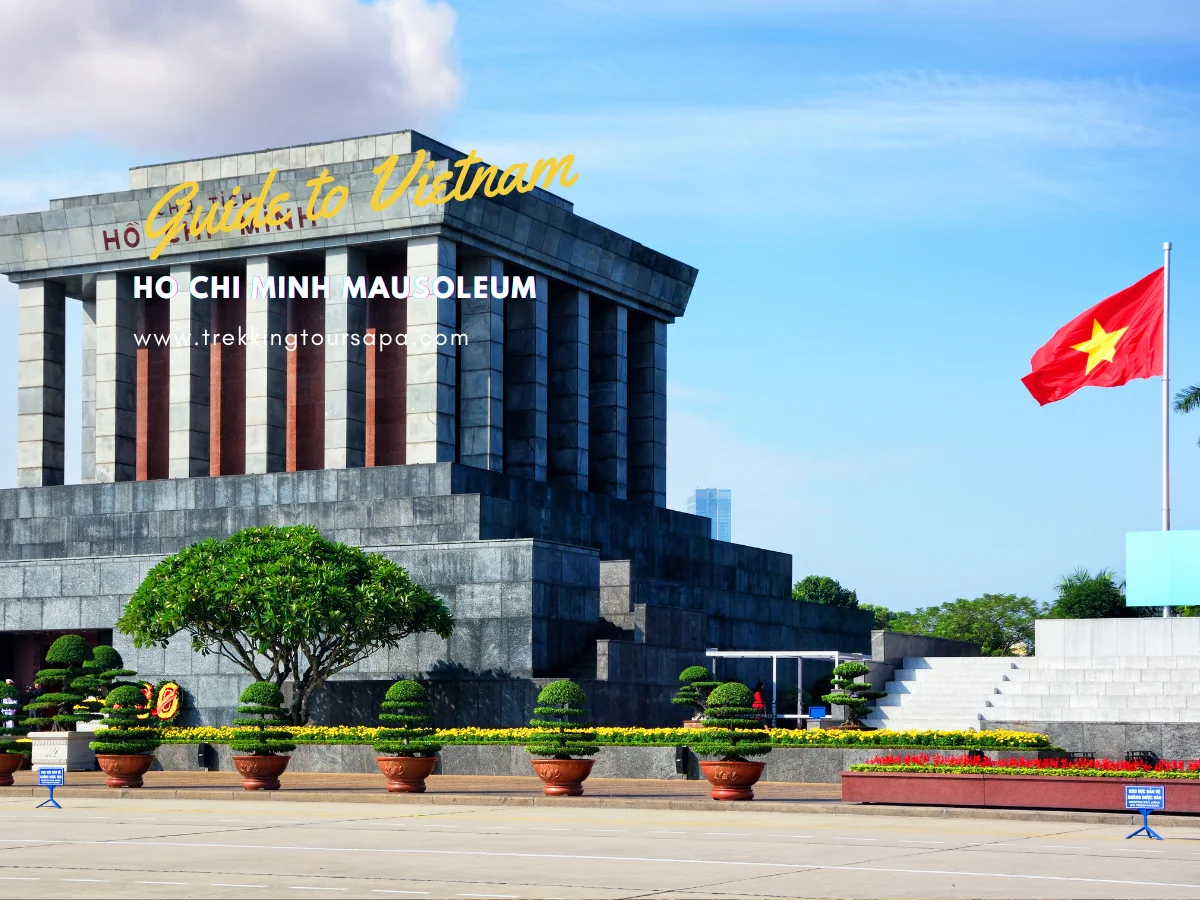If you’re planning a trip to Sapa, Vietnam, you may be wondering how to travel in a way that’s both ethical and sustainable. As an eco-conscious traveler, you want to make sure your visit benefits the local community and environment while minimizing any negative impact. Fortunately, there are plenty of options for responsible tourism in Sapa.

From eco-tourism activities such as trekking and cycling through rice paddies, to cultural experiences like homestays with ethnic minority families, there are many ways to immerse yourself in the beauty of Sapa while supporting sustainable tourism practices. In this guide, we’ll explore some of the best ethical and sustainable tourism options available in Sapa so that you can enjoy your travels with peace of mind.
Table of Contents
ToggleThe Importance of Ethical and Sustainable Tourism in Sapa
You’re here because you care about making a positive impact on the community and environment while exploring this beautiful destination nestled in the mountains of Northern Vietnam. As a responsible traveler, you understand the importance of ethical tourism impact and sustainable travel benefits. Sapa is a unique location that offers stunning landscapes, rich culture, and an opportunity to experience life as it’s lived by local people. However, with increased tourism comes increased pressure on resources such as water, energy, and food. Ethical tourism seeks to minimize negative impacts while maximizing positive ones.

Sustainable travel benefits not only the environment but also the local economy by promoting responsible practices that help preserve natural resources for future generations. By choosing eco-friendly accommodations, participating in meaningful cultural experiences, and supporting local businesses and organizations committed to sustainability, you can make a difference in protecting Sapa’s unique beauty. The next section will focus on eco-tourism activities that allow you to explore this region in a way that respects nature and supports its preservation for years to come.
Eco-Tourism Activities
If you’re interested in experiencing nature and contributing to its preservation, there are many eco-tourism activities available for you to enjoy in Sapa. Explore the stunning hiking trails with a local guide who will show you the natural wonders of the area. Go on a bird-watching tour and observe the biodiversity of over 300 species that call this region their home. And if you’re feeling adventurous, try your hand at farming alongside locals in community projects aimed at preserving traditional agricultural techniques.

These eco-friendly activities not only provide an opportunity to explore nature but also support sustainable development by providing income for local communities. By engaging in these activities, you’ll also gain a deeper understanding and respect for Sapa’s unique culture and way of life. Speaking of which, let’s move on to cultural experiences that can be enjoyed responsibly while supporting local communities.
Cultural Experiences
Let’s delve into the rich cultural experiences available in this vibrant region that offer a chance to connect with locals and support their way of life. Sapa is home to several ethnic minority groups, each with its traditional customs and practices. A local guide can lead you through the villages to witness these traditions firsthand, such as the Hmong women weaving intricate patterns on looms or the Red Dao people bathing in herbal remedies.
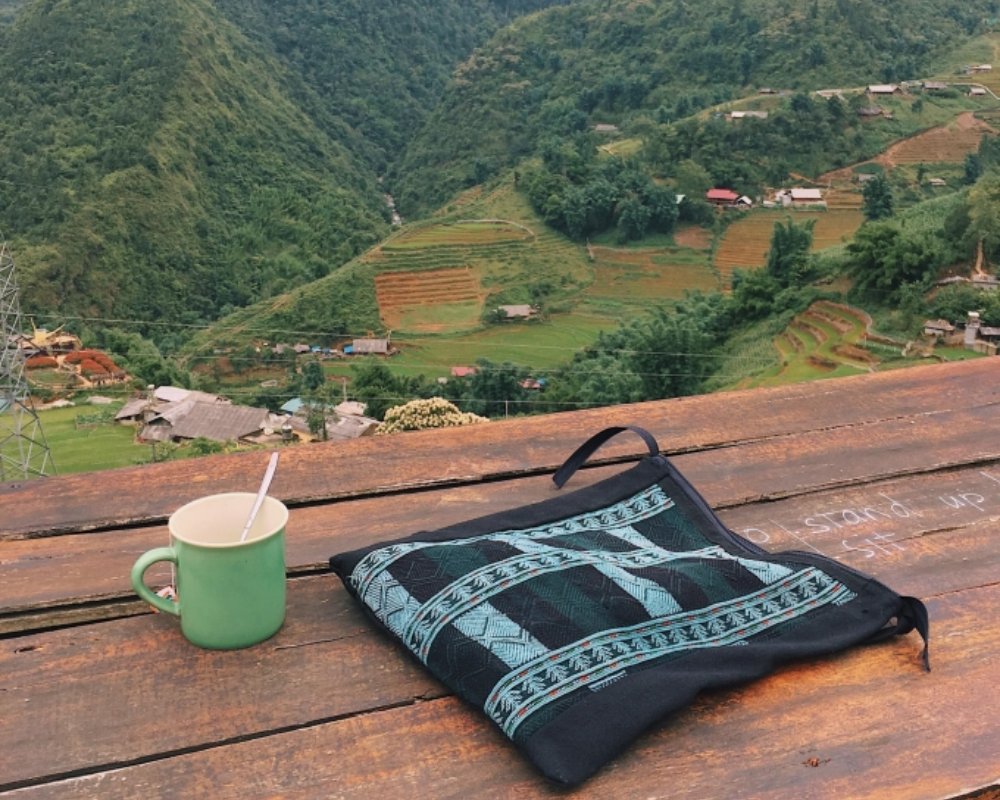
Participating in a homestay program is another way to immerse yourself in the local culture. You’ll have a unique opportunity to live with a family and learn about their daily routines, and cooking methods, and taste their delicious local cuisine. Not only will you gain an appreciation for their way of life, but you’ll also support sustainable tourism by contributing directly to the community’s economy. With so many cultural experiences available in Sapa, your trip will surely be enriched by connecting with the locals and learning from them firsthand. Now let’s explore how choosing responsible tour operators can further enhance your experience while supporting ethical tourism practices.
Sapa 1 Day Tours
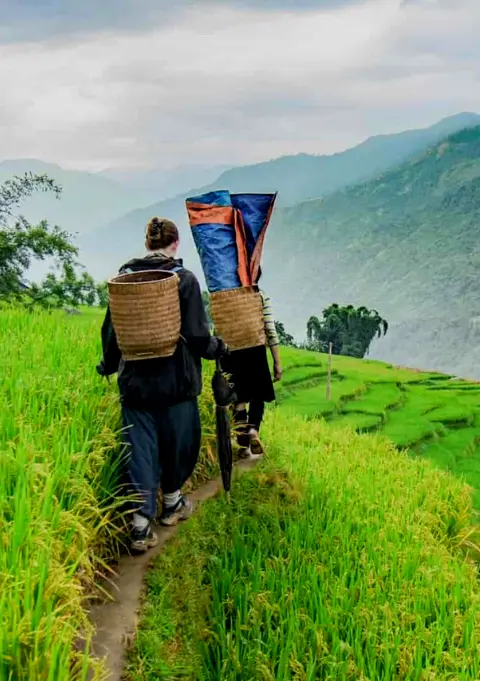
- 1 day experience
- Moderate to challenging
- Cultural immersion & active adventure
- Rice fields, valleys & villages
- Private tours
- Vegan-friendly
Sapa 2 Day Tours
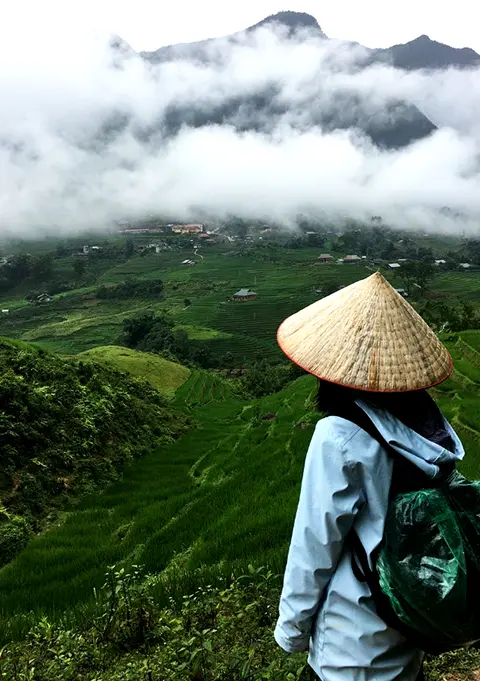
- 2 days 1 night experience
- Moderate to challenging
- Cultural immersion & active adventure
- Mountains, valleys, rice fields and villages
- Private tours
- Vegan-friendly
Sapa 3 Day Tours
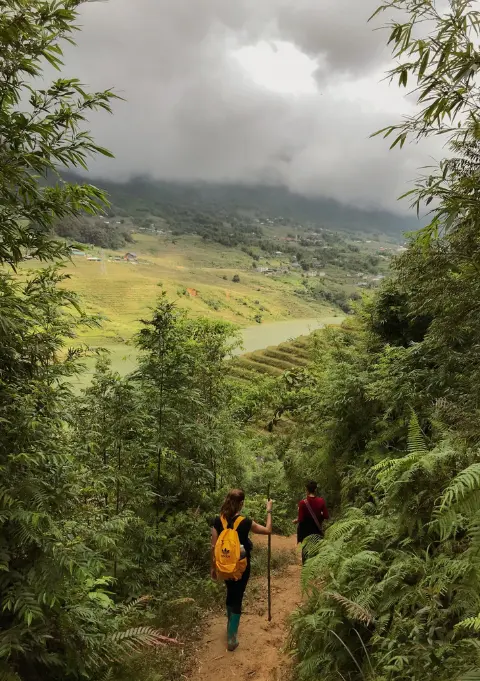
- 3 days 2 night experience
- Moderate to challenging
- Cultural immersion & active adventure
- Mountains, valley, rice fields & villages
- Private tours
- Vegan-friendly
Sapa 4 Day Tours
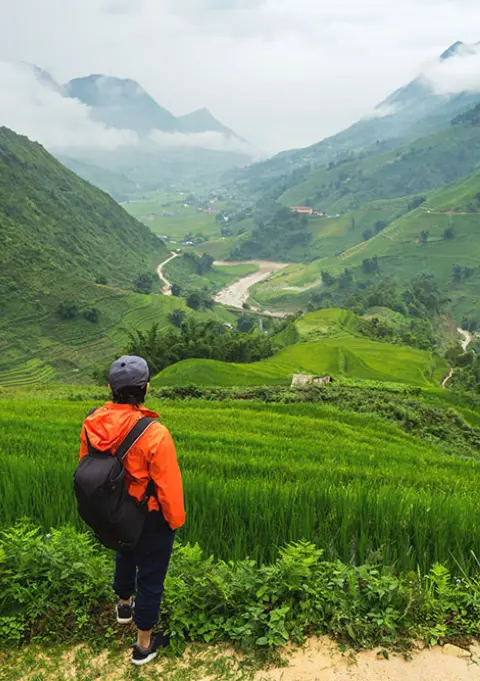
- 4 days 3 night experience
- Moderate to challenging
- Cultural immersion & active adventure
- Mountains, valleys, rice fields & villages
- Private tours – Less Touristic
- Vegan-friendly
Responsible Tour Operators
Oh, so you thought all tour operators were only concerned about their profits? Well, think again because responsible ones are out there who prioritize the safety and well-being of their guests while also supporting the local communities. These ethical tour operators in Sapa are dedicated to community engagement and environmental conservation, making sure that their impact on the destination is positive.
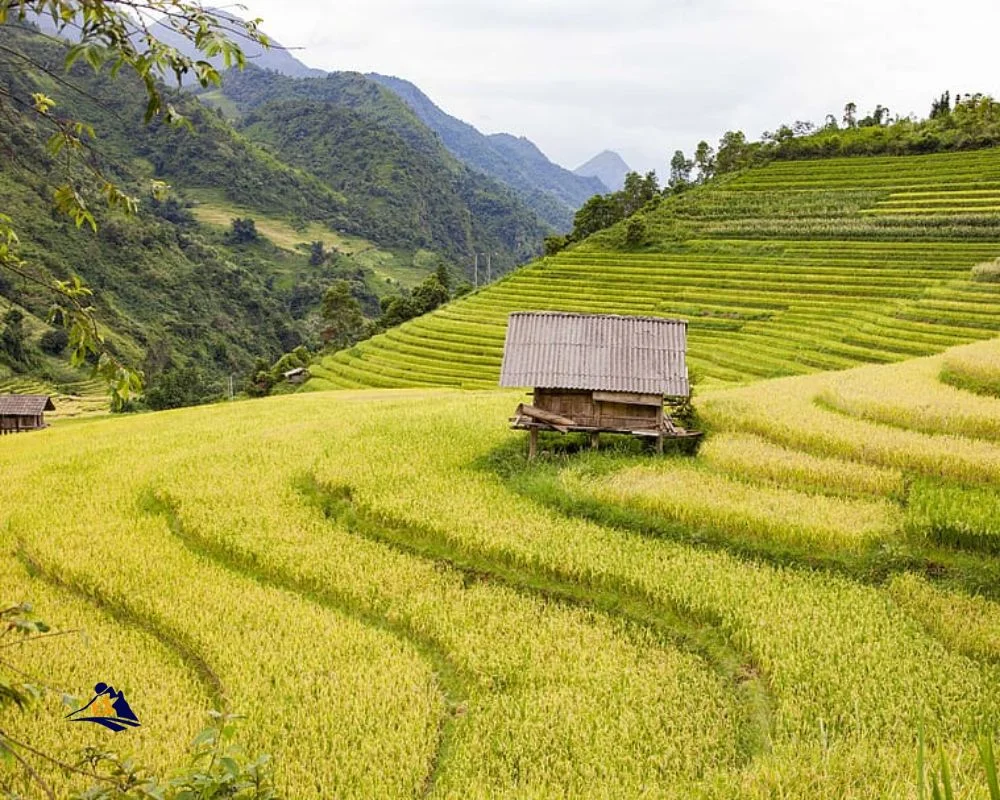
When choosing a responsible tour operator in Sapa, keep in mind that they follow sustainable practices such as minimizing waste and pollution, supporting local businesses and initiatives, and respecting cultural traditions. Here are some things to look for when selecting your operator:
- Look for companies with certifications or affiliations with recognized sustainability organizations.
- Choose operators that have transparent policies regarding their environmental and social responsibilities.
Incorporating these tips will ensure a guilt-free travel experience while helping preserve the beauty of Sapa for future generations.
Next up: Tips for Responsible Travel in Sapa – Respect the local culture and traditions by dressing appropriately and asking for permission before taking photos of locals.
Tips for Responsible Travel in Sapa
To travel responsibly in Sapa, be sure to respect the local culture and traditions. This means dressing appropriately, especially when visiting sacred sites or attending cultural events. Additionally, it is important to ask for permission before taking photos of residents. Remember that you are a guest in their home and should act accordingly.
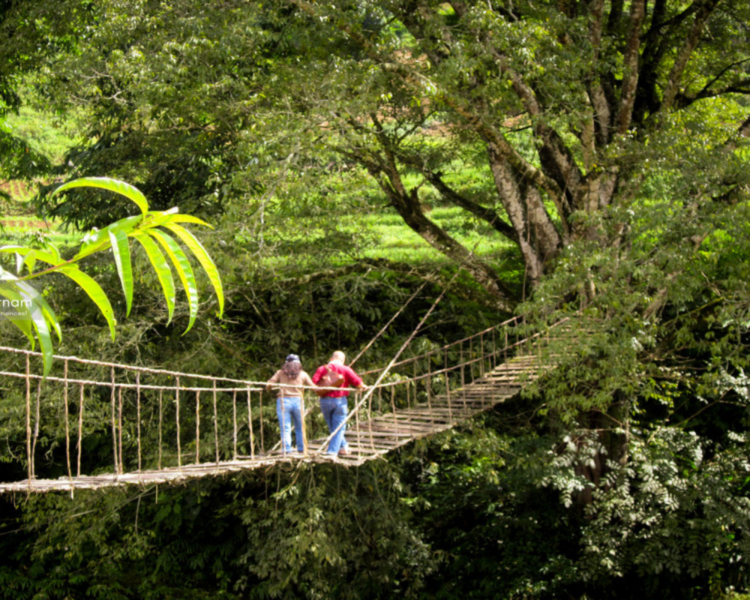
Community engagement and environmental conservation are also crucial components of responsible travel in Sapa. Seek out opportunities to engage with local communities through homestays or volunteering with community-led projects. When exploring the natural beauty of the region, be sure to leave no trace behind and support businesses that prioritize sustainability and eco-friendliness. By following these tips, you can ensure that your travels have a positive impact on both the people and the environment of Sapa.
As you consider your options for responsible travel in Sapa, it may be helpful to look at examples of successful ethical and sustainable tourism initiatives in the area. These initiatives can serve as models for how tourism can benefit local communities while also preserving cultural heritage and protecting natural resources.
Sapa 1 Day Tours

- 1 day experience
- Moderate to challenging
- Cultural immersion & active adventure
- Rice fields, valleys & villages
- Private tours
- Vegan-friendly
Sapa 2 Day Tours

- 2 days 1 night experience
- Moderate to challenging
- Cultural immersion & active adventure
- Mountains, valleys, rice fields and villages
- Private tours
- Vegan-friendly
Sapa 3 Day Tours

- 3 days 2 night experience
- Moderate to challenging
- Cultural immersion & active adventure
- Mountains, valley, rice fields & villages
- Private tours
- Vegan-friendly
Sapa 4 Day Tours

- 4 days 3 night experience
- Moderate to challenging
- Cultural immersion & active adventure
- Mountains, valleys, rice fields & villages
- Private tours – Less Touristic
- Vegan-friendly
Examples of Successful Ethical and Sustainable Tourism Initiatives in Sapa
If you’re interested in learning more about how tourism can benefit local communities and protect cultural heritage, check out these inspiring examples of responsible travel initiatives that have succeeded in Sapa. Community involvement is a key factor in successful ethical and sustainable tourism, and one example of this is the Hmong Sapa Hotel. This hotel was built by a local Hmong family who wanted to create employment opportunities for their community while also preserving traditional customs and architecture. The hotel offers guests an opportunity to learn about Hmong culture through activities such as cooking classes, handicraft workshops, and visits to nearby villages.

Another example of successful ethical tourism initiatives in Sapa is environmental conservation efforts by organizations such as the Fansipan Legend Cable Car Company. This company installed a cable car system that has reduced the need for road construction on the mountain, minimizing its impact on the environment. Additionally, they have implemented waste management programs and reforestation projects to further protect the natural beauty of Sapa’s landscape. These initiatives not only benefit the environment but also contribute positively to the local economy by creating jobs and attracting visitors who are interested in responsible travel options.
The Future of Ethical and Sustainable Tourism in Sapa
As you imagine the future of responsible travel in Sapa, it is iessentialnt to take note of the challenges faced by the local communities and environment. One challenge is the increasing number of tourists visiting the region, which can lead to overcrowding and environmental degradation. To address this issue, innovative solutions have been implemented such as promoting off-season travel, limiting visitor numbers to certain areas, and encouraging eco-friendly practices among tourists.
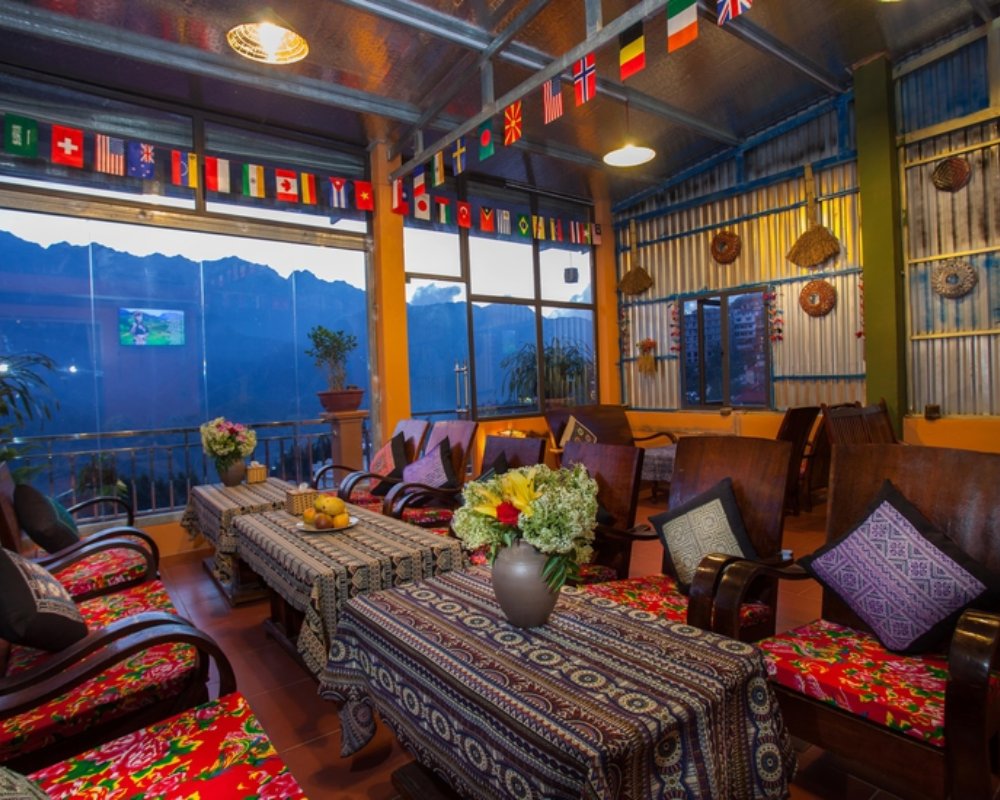
Another challenge is ensuring that tourism benefits local communities instead of exploiting them. Initiatives such as homestays and community-based tours have been successful in providing income for local families while also allowing visitors to learn about traditional practices and customs. As a responsible traveler, you can support these initiatives by choosing tour operators that prioritize sustainability and social responsibility, while also respecting local cultures and traditions. By doing so, you will not only contribute positively to the region’s economy but also help preserve its unique culture and natural beauty for generations to come.
A Guide To Sapa’s Ethical And Sustainable Tourism Options Frequently Asked Questions
What is the history of tourism in Sapa?
Sapa has a rich history of tourism that dates back to the French colonial era. The impact of colonial influence on the region’s culture is still evident today, with many traditional villages transformed into tourist hotspots. While tourism has brought economic benefits to the area, it has also had negative consequences, such as changes in local customs and an increase in waste and pollution. As a responsible traveler, it’s important to understand the history of tourism in Sapa and its impact on the community before planning your trip.
How does Sapa’s tourism industry impact the local economy?
You want to go on a vacation and enjoy the beauty of Sapa, but have you stopped to think about what your visit means for the locals? Sure, you might be putting money into their economy, but at what cost? The tourism industry in Sapa has had a significant impact on the local economy. On one hand, there is community involvement as locals benefit from selling goods and services to tourists. However, economic sustainability is an issue as many tourists come for cheap prices while leaving little behind in terms of sustainable practices or responsible spending. It’s important to consider how we can support the local economy without causing harm or exploitation.
Are there any negative environmental impacts of tourism in Sapa?
Mitigating the negative environmental impacts of tourism in Sapa is crucial for preserving the natural beauty and resources of the region. Fortunately, there are sustainable alternatives that can help to minimize these impacts. For example, choosing eco-friendly accommodations that prioritize conservation and minimizing waste can greatly reduce your ecological footprint. Additionally, participating in responsible trekking tours with local guides who prioritize preservation and respect for nature can also help mitigate impacts on sensitive ecosystems. By making conscious choices about how you travel and engage with the environment, you can enjoy all that Sapa has to offer while leaving a positive impact on both the community and the environment around you.
What efforts are being made to involve local communities in tourism initiatives?
Community engagement is crucial in responsible tourism initiatives, and efforts are being made to involve local communities in Sapa. Just like a plant needs sunlight to grow, responsible tourism initiatives need the participation of local communities to flourish. Through community-led projects and partnerships with local organizations, tourists can learn about the cultural heritage of the region while contributing to sustainable development. In Sapa, there are many opportunities for travelers to engage with locals through homestays, guided tours, and volunteering programs. These initiativebenefit the environment andso empower communities by providing economic opportunities and preserving their traditional way of life.
How has the COVID-19 pandemic affected Sapa’s tourism industry, and what measures have been taken to ensure its sustainability in the future?
Tourism recovery in Sapa has been slow but steady since the Covid-19 pandemic struck. As a responsible traveler, you may be wondering about the future strategies that have been put in place to ensure the sustainability of this industry. Local authorities and tourism businesses have been working tirelessly to implement measures such as enhanced hygiene protocols, social distancing guidelines, and training programs for staff. Additionally, there has been a concerted effort to promote domestic tourism and support local communities through initiatives such as homestays and cultural tours. These measures are designed not only to protect tourists but also to respect and preserve the natural beauty and culture of Sapa for generations to come.
Conclusion
Congratulations! You have gained valuable insights into ethical and sustainable tourism in Sapa. By choosing responsible tour operators, engaging in eco-tourism activities and cultural experiences, and following simple tips for responsible travel, you can make a positive impact on the environment and local communities.
Remember, ethical and sustainable tourism is not only about preserving the natural beauty of Sapa but also supporting the livelihoods of its people. As you plan your next trip to Sapa, consider the examples of successful initiatives that promote fair trade, reduce waste, and empower local communities.
By making conscious choices as travelers, we can contribute to a brighter future for Sapa’s environment and culture. Let us continue to support ethical and sustainable tourism practices in all our travels. Happy journey!
Sapa 1 Day Tours

- 1 day experience
- Moderate to challenging
- Cultural immersion & active adventure
- Rice fields, valleys & villages
- Private tours
- Vegan-friendly
Sapa 2 Day Tours

- 2 days 1 night experience
- Moderate to challenging
- Cultural immersion & active adventure
- Mountains, valleys, rice fields and villages
- Private tours
- Vegan-friendly
Sapa 3 Day Tours

- 3 days 2 night experience
- Moderate to challenging
- Cultural immersion & active adventure
- Mountains, valley, rice fields & villages
- Private tours
- Vegan-friendly
Sapa 4 Day Tours

- 4 days 3 night experience
- Moderate to challenging
- Cultural immersion & active adventure
- Mountains, valleys, rice fields & villages
- Private tours – Less Touristic
- Vegan-friendly
